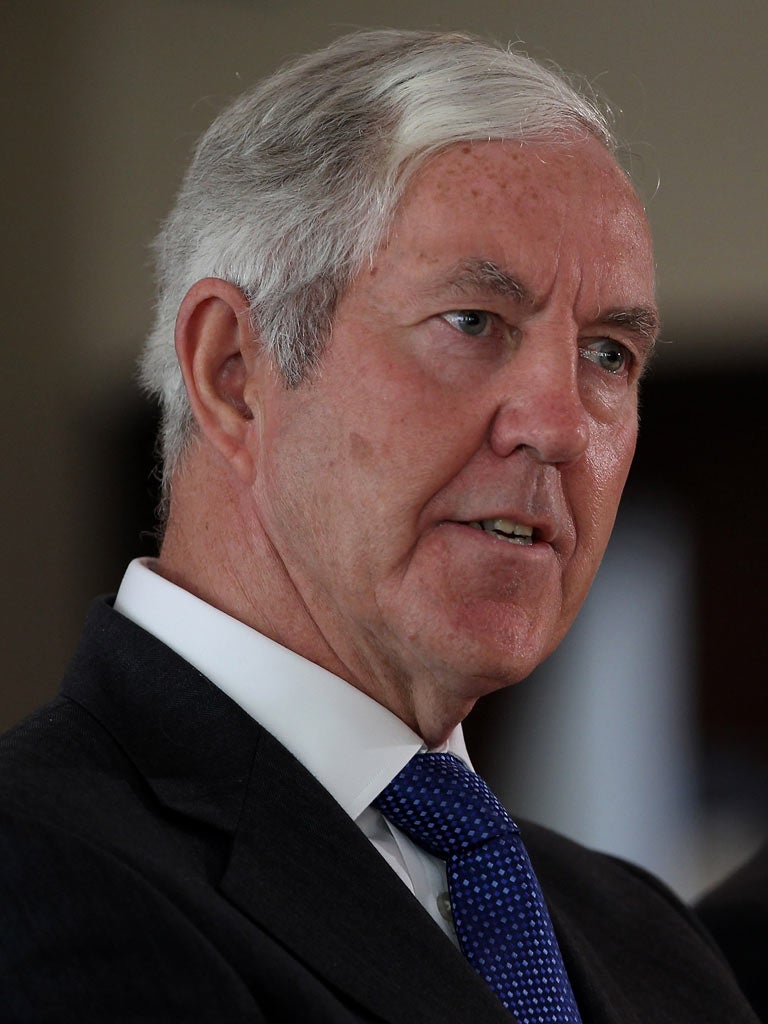
Your support helps us to tell the story
From reproductive rights to climate change to Big Tech, The Independent is on the ground when the story is developing. Whether it's investigating the financials of Elon Musk's pro-Trump PAC or producing our latest documentary, 'The A Word', which shines a light on the American women fighting for reproductive rights, we know how important it is to parse out the facts from the messaging.
At such a critical moment in US history, we need reporters on the ground. Your donation allows us to keep sending journalists to speak to both sides of the story.
The Independent is trusted by Americans across the entire political spectrum. And unlike many other quality news outlets, we choose not to lock Americans out of our reporting and analysis with paywalls. We believe quality journalism should be available to everyone, paid for by those who can afford it.
Your support makes all the difference.The International Cricket Council's former anti-corruption head, Lord Condon, has called for countries whose players are caught up in match-fixing to be banned from the international arena.
Lord Condon was speaking after the jailing of Pakistan players Salman Butt, Mohammad Amir and Mohammad Asif for spot-fixing – specifically, bowling pre-arranged no-balls against England at Lord's in 2010. "The ICC has to give out the harshest sentences it can," he said. "The nuclear option is banning boards from international cricket."
While Lord Condon's comments imply that the individual countries may not be doing enough to eradicate corruption in the game, he also places some blame at the door of the game's governing body.
"The ICC must get tougher," he told the BBC yesterday. "This is a big wake-up call. Cricket is at a credibility crossroads. The ICC and national boards have to be tough and, if they are not, they have to face the consequences."
The former Metropolitan Police commissioner became the first head of the ICC's anti-corruption unit in 2000, when it was set up as a response to the match-fixing scandal involving South African captain Hansie Cronje. He was succeeded in June 2010 by another former policeman, Sir Ronnie Flanagan, but watched the trial involving the Pakistan trio with grim interest.
"They deserved the sentences they got," he said of the jail terms ranging from six to 30 months handed down to the Pakistan trio. "I have mixed reactions – sadness, but I'm not surprised. They betrayed their country and millions of people around the world who love cricket."
On the pitch, Pakistan find themselves 237 runs behind Sri Lanka, who have five second-innings wickets left in the third and final Test in Sharjah. Tharanga Paranavitana and Kumar Sangakkara hit half-centuries for Sri Lanka, who ended day four on 164 for five after a middle-order collapse. Sri Lanka hit 413 in their first innings to Pakistan's 340 and lead the series 1-0.
In New Delhi, Shivnarine Chanderpaul enhanced his reputation as a nemesis for India with an unbeaten century to help West Indies reach 256 for five on the opening day of the first Test yesterday. The 37-year-old helped the side recover from 72-3 soon after lunch. PA
Join our commenting forum
Join thought-provoking conversations, follow other Independent readers and see their replies
Comments